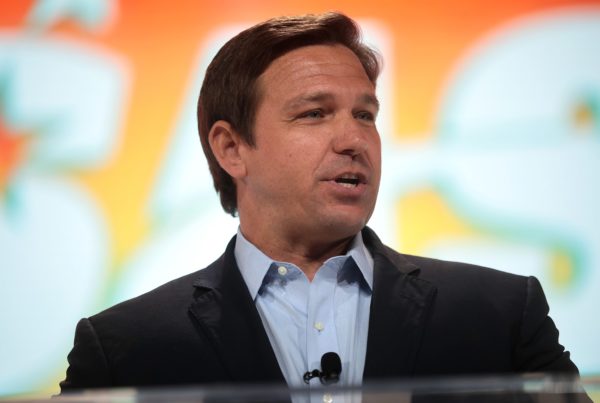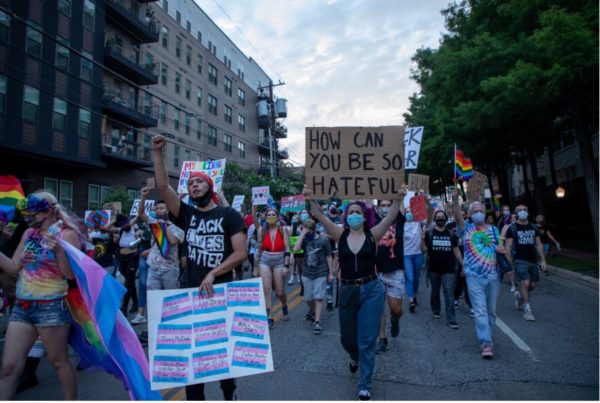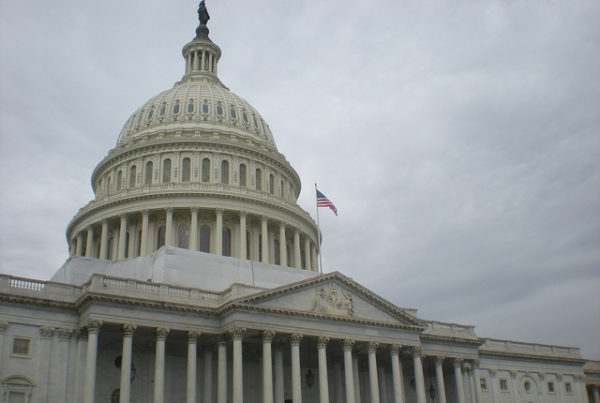Last week, a federal appeals court upheld a Texas law that limits social media companies’ ability to independently decide who gets to use their platforms and who doesn’t. The Texas social media law, also known as House Bill 20, prevents platforms with more than 50 million monthly users from removing a user’s posts based on their political viewpoints. The ruling is – at least in the short term – a victory for Republicans, including Texas Gov. Greg Abbott, who believes that social media companies are biased against conservative users. Abbott signed the bill last year to combat what he called “a dangerous movement” to “silence conservative ideas and religious beliefs.”
A Supreme Court ruling in May temporarily blocked the law, after tech industry groups representing Facebook, Twitter, and Google sued Texas to keep it from going into effect. The groups argued that the legislation would compromise social media platforms’ ability to remove dangerous content like hate speech, propaganda and misinformation. But now a federal appeals court has upheld the Texas law. What’s next?
Steve Vladeck is Charles Alan Wright Chair In Federal Courts, and a professor at the University of Texas School of Law. He told Texas Standard that the Supreme Court must now consider two conflicting lower court rulings on the constitutionality of state laws in Texas and Florida. Listen to the interview above or read the transcript below.
This transcript has been edited lightly for clarity:
Texas Standard: I’d imagine tech groups are going to appeal to the Supreme Court now.
Steve Vladeck: No doubt. And I think it’s important to note that in addition to the Fifth Circuit’s ruling from last week, there’s actually a directly contrary ruling from the 11th Circuit, the federal appeals court that covers Florida, that actually struck down Florida’s very similar law earlier this summer. So I think this case is going to the Supreme Court with a bullet. And at least given what the Supreme Court has already done with the Texas case from earlier in the summer, I think it’s a good bet the Supreme Court’s going to side with the 11th Circuit, and that it’s ultimately going to strike down Texas’s law as well.
So we’re talking about a split in the circuits, and that’s a big red flag for the Supreme Court to intervene. I guess this comes down to different perspectives on what counts as a viewpoint discrimination under the law, no?
Yes and no. I think one of the sort of animating fights in this case is whether large businesses, large social media platforms – Twitter, Facebook, etc. – are equivalent to common carriers, and are so pervasive in our society that they ought to be bound by the same limits on speech regulation that we apply to the government itself. Usually the government can’t moderate content without violating the First Amendment. But we tend to think that private companies aren’t bound by the First Amendment. The First Amendment is not a protection against private businesses. And yet what the Fifth Circuit has held here is that the same principles, even if not compelled by the First Amendment, justify what Texas has done, allowing Texas to basically override the free speech rights of these platforms. That’s the tension here, is sort of whose free speech should be more important.
Well, I think that the Fifth Circuit said in its decision that companies don’t have a, sort of, willy-nilly right to trample on the free speech of independent, private citizens. And you take a look at the Texas law, and there’s a kind of a threshold, if you have 50 million monthly users. And that does seem to sort of suggest that Texas is saying, well, you platforms have a monopoly over the conversation that’s taking place in this country.
They may have a monopoly over the conversation. The problem is that they don’t have a monopoly over public services. The place where the Fifth Circuit’s analysis fatally breaks down is that we actually don’t rely on Twitter or Facebook to deliver the mail, to keep the power going, to allow our cell phones to work. And so it’s not really the case that these are public sector entities that we’re dependent upon for our subsistence. We might feel that way sometimes, but if we change the facts a bit – I mean, I think no one would feel that up in arms if HEB, for example, had a policy limiting our ability to walk around their stores with a bullhorn shouting out whatever we wanted. Well, this is basically what the social media platforms are saying. We should be allowed to regulate content that is happening on and only because of our businesses. And by the Fifth Circuit saying that Texas has a right to regulate that, the question is, why couldn’t Texas regulate that in all businesses, not just large ones, and why wouldn’t that actually interfere with this free speech rights of those businesses who shouldn’t usually be compelled to embrace a message with which they disagree?
Why do you believe the Supreme Court’s going to come down this way? Earlier they put a hold on Texas’s law from taking effect.
The district court had originally blocked the law. So the law actually never went into effect earlier this summer. The Fifth Circuit had stayed that decision, which meant that it was about to go into effect only to have the U.S. Supreme Court by a 5-4 vote, vacate that stay. And they simply put the injunction back into effect. We don’t know what the rationale was. There was no majority opinion. But it’s hard to imagine that five justices were willing to put HB 20 back on hold this summer if they didn’t believe that there were serious problems with HB 20, if they weren’t deeply sympathetic to the arguments being made by these businesses, by the social media platforms.















